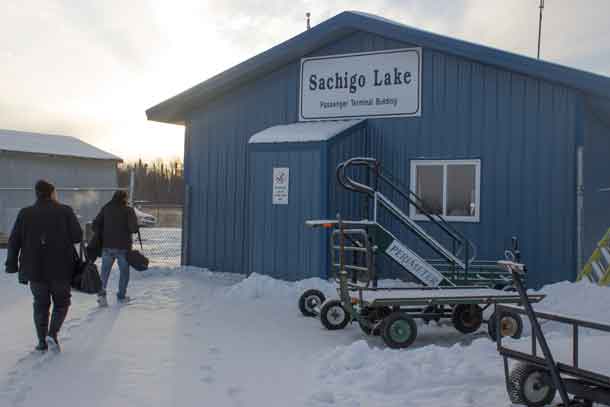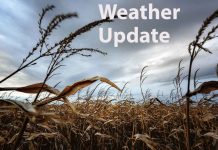Kitchenuhmaykoosib Inninuwug, Bearskin Lake First Nation, Sachigo Lake First Nation, Kasabonika First Nation, and Sandy Lake First Nation are experiencing a brisk start to the day under cloudy skies. Temperatures have dipped to -12°C early this morning, as observed from the Big Trout Lake Airport at 6:00 AM CDT. A gentle north-northeast wind at 8 km/h accentuates the chill, pushing the wind chill factor to -17°C. Visibility is relatively clear at 16 km, allowing for unobstructed views despite the cloud cover.
Weather Overview
Current Conditions
The air is nearly saturated with humidity at 94%, indicating a dense, moist atmosphere. The combination of cold temperatures and high humidity levels under cloudy skies sets a chilly stage for the day. Despite the cloudiness, the wind remains moderate, contributing to the day’s cold feel.
Today’s Forecast
Cloudiness is set to increase through the morning, with winds remaining gentle at up to 15 km/h. Temperatures are expected to rise slightly, reaching a high of -4°C. However, the wind chill will make it feel significantly colder, ranging from -19°C in the morning to -8°C in the afternoon. The UV index remains low at 2.
Tonight, skies will become overcast, with the temperature dropping to -14°C. The wind chill will vary from -8°C in the evening to -18°C overnight, making for a notably cold night.
Extended Outlook
- Sunday, March 31: The day starts cloudy with a 30% chance of morning flurries, transitioning to a mix of sun and cloud. The high is expected to be -5°C, with wind chills of -20°C in the morning and -10°C in the afternoon. The UV index will be moderate at 3.
- Monday, April 1: Sunny skies bring a slight temperature improvement, with a high of 0°C. Nighttime will see clear skies and a low of -10°C.
- Tuesday, April 2: Continued sunshine with warmer conditions, as temperatures climb to a high of +3°C. The night will remain clear, with a low of -11°C.
Wardrobe Recommendations
Given the cold temperatures and varying wind chills, residents are advised to dress warmly. Layering with thermal wear, insulated outer garments, and wind-resistant clothing is essential. Hats, gloves, and scarves will provide additional protection against the cold, especially in the early hours and overnight.
Weather Trivia
These northern communities are no strangers to extreme weather conditions. For example, Big Trout Lake has recorded temperatures as low as -40°C in winter, illustrating the challenging weather conditions faced by Northern Ontario’s First Nations.








